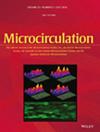GATA2 regulates blood/lymph separation in a platelet-dependent and lymphovenous valve-independent manner
Abstract
Introduction
Lymphatic vessels collect interstitial fluid, immune cells, and digested lipids and return these bodily fluids to blood through two pairs of lymphovenous valves (LVVs). Like other cardiovascular valves LVVs prevent the backflow of blood into the lymphatic vessels. In addition to LVVs, platelets are necessary to prevent the entry of blood into the lymphatic vessels. Platelet thrombi are observed at LVVs suggesting that LVVs and platelets function in synergy to regulate blood/lymphatic separation.
Objectives
The primary objective of this work is to determine whether platelets can regulate blood/lymph separation independently of LVVs.
Methods
The transcription factor GATA2 is necessary for the development of both LVVs and hematopoietic stem cells. Using various endothelial- and hematopoietic cell expressed Cre-lines, we conditionally deleted Gata2. We hypothesized that this strategy would identify the tissue- and time-specific roles of GATA2 and reveal whether platelets and LVVs can independently regulate blood/lymph separation.
Results
Lymphatic vasculature-specific deletion of Gata2 results in the absence of LVVs without compromising blood/lymph separation. In contrast, deletion of GATA2 from both lymphatic vasculature and hematopoietic cells results in the absence of LVVs, reduced number of platelets and blood-filled lymphatic vasculature.
Conclusion
GATA2 promotes blood/lymph separation through platelets. Furthermore, LVVs are the only known sites of interaction between blood and lymphatic vessels. The fact that blood is able to enter the lymphatic vessels of mice lacking LVVs and platelets indicates that under these circumstances the lymphatic and blood vessels are connected at yet to be identified sites.

 求助内容:
求助内容: 应助结果提醒方式:
应助结果提醒方式:


